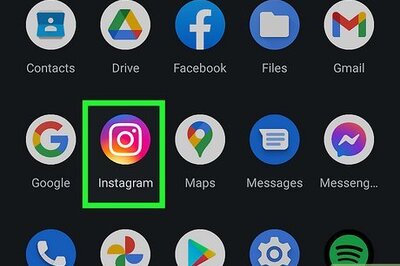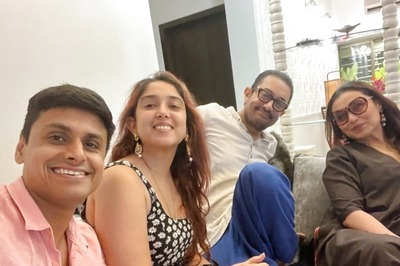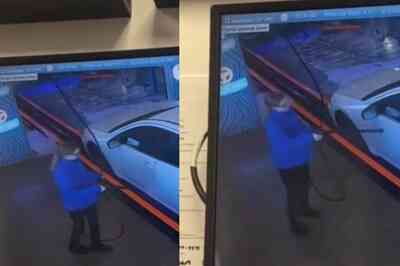
views
Columbia University authorities have begun suspending student protesters involved in the pro-Palestinian protests on campus after the ignored a deadline to disband the encampments. The students had set up a Gaza Solidarity Encampment to demand divestment from Israel and companies that are allegedly contributing to its war against Hamas in Gaza and also a ceasefire to the ongoing war.
The administration warned that those failing to follow these orders by Monday noon would face disciplinary action. Students involved in the protests defied the orders and rallied at the site as the deadline passed.
“These repulsive scare tactics mean nothing compared to the deaths of over 34,000 Palestinians. We will not move until Columbia meets our demands or… are moved by force,” said a statement, read out by a student at a press conference after the deadline, referring to the death toll in Gaza.
Following the release of the statement, Columbia vice president of communications Ben Chang said the university had “begun suspending students as part of this next phase of our efforts to ensure safety on our campus”.
The move comes after almost two weeks of protests against Israel’s war in Gaza that have swept through American universities from coast to coast, after around 100 protesters were first arrested at Columbia on April 18.
Chang warned the student leaders that they would be “placed on suspension, ineligible to complete the semester or graduate, and will be restricted from all academic, residential, and recreational spaces”.
Columbia University president Minouche Shafik said some Jewish students have been feeling unsafe due to the protests and said the right to protest cannot come at the expense of someone else’s right to learn.
“Many of our Jewish students, and other students as well, have found the atmosphere intolerable in recent weeks. Many have left campus, and that is a tragedy. Anti-Semitic language and actions are unacceptable and calls for violence are simply abhorrent,” Shafik, who is facing calls to step down from her role, mainly by Republicans, said.
“One group’s rights to express their views cannot come at the expense of another group’s right to speak, teach and learn,” Shafik further added.
Protest organizers deny accusations of anti-Semitism, arguing their actions are aimed at Israel’s government and its prosecution of the conflict in Gaza.
They also insist some incidents have been engineered by non-student agitators.
“What continues to transpire at Columbia is an utter disgrace. The campus is being overrun by antisemitic students and faculty alike,” US House of Representatives Speaker Mike Johnson said.
Several other colleges and universities also called the police to arrest protesters over the weekend. Police at Virginia Tech arrested 91 people on trespassing charges, out of whom 54 are currently enrolled in the college.
Police also arrested protesters at the University of Georgia. Cornell University also handed out its “first set of immediate temporary suspensions” on Monday. Scuffles and jostling were reported at the University of California, Los Angeles (UCLA) between rival protesting groups.
Cops ended another protest at the University of Texas at Austin, leading to multiple arrests. The university authorities said they found “baseball-size rocks” in the encampment and the “majority of protesters are believed to be unaffiliated with the university”.
Protests against the Gaza war, with its high Palestinian civilian death toll, have posed a challenge to university administrators trying to balance free speech rights with complaints that the rallies have veered into anti-Semitism and hate.
Footage of police in riot gear summoned at various colleges to break up rallies have been viewed around the world, recalling the protest movement that erupted during the Vietnam War.
(with inputs from BBC and AFP)




















Comments
0 comment